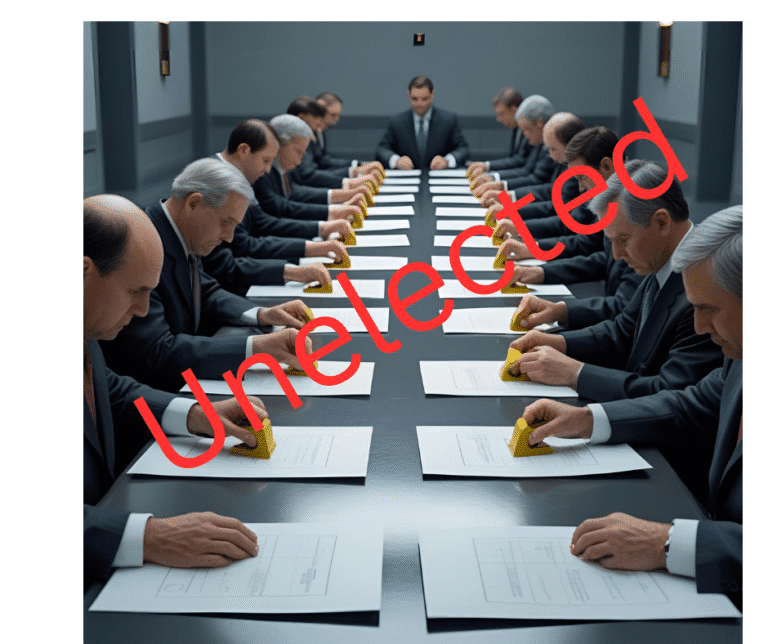The Maryland State Department of Education and the Accountability and Implementation Board Negotiate Responsibilities
It may be time for the citizens of Maryland to figure it out. Our local elected school boards are no longer necessary in running the public schools.
If this comment shocks and upsets you, review the following facts:
- The Blueprint for Maryland’s Future, a multi-billion-dollar education monstrosity mandates how much locals will spend on public schools and what that money will be used for, thus taking the important decision making out of the hands of local elected officials.
- Through HB 161, passed in last year’s legislative session, the State of Maryland is now forcing local education agencies to adopt the curriculums mandated by the state via the state frameworks in each subject. Failure to do so will trigger action by the unelected State Superintendent of Schools to strip those local agencies of state funding.
- Unelected bureaucrats, the Accountability and Implementation Board and MSDE are now determining who will be the ultimate authority on Blueprint implementation.
The headline from this MARYLAND MATTERS story tells it all:
If you think this isn’t true, just ask any of the local school board members in your district as well as elected county officials. Ask your school board’s highly paid lawyer; the person who trains school boards to remain silent and rubber stamp decisions by the local administrators, i.e. hired employees. These employees are hired and serve at the will of the elected school board. You would never know it. Ask any of your board members why they don’t speak up, fight back, exert the power given them by voters. They will tell you they are afraid to; afraid they will be reprimanded, bullied and even removed.
When the Blueprint was implemented, a seven-member panel, the AIB (Accountability and Implementation Board) was created to oversee and approve any implementation documents created by local districts and state agencies regarding the Blueprint. Again, the AIB was an appointed, unelected panel. Therefore, they are unaccountable to anyone, even the Maryland State Department of Education. They are certainly not accountable to the citizens of the State of Maryland.
This caused confusion, poor communication and sloppy implementation across the state. The members of the AIB were not directly involved in day-to-day operation of the public schools, so their decisions for programs and funding were not only too expensive, but totally unrealistic. Local Education Agencies complained about inadequate guidance about how to implement the leviathan education bill in systems where staffing and facilities were not in place to handle such radical change. County officials watched the estimated cost of the bill multiply exponentially, so much that some counties like Carroll had no choice but to cut and redistribute staff in schools:
And, when it’s not clear where money should be spent, the possibility for fraud rears its ugly head, much like it did with federal Covid grants:
Audit finds Maryland schools ‘didn’t know how to use’ state funds
In 2023, Baltimore Mayor Brandon Scott called the financial requirement for Blueprint, a “gut punch”:
Mayor Scott: Realizing hike in City Schools funding requirement was a ‘gut punch’
Apparently now, with all this happening, the AIB, the State Board of Education, state legislators and MSDE have had an epiphany. Surely, they decided to give more control to the elected school boards and counties in funding and implementing the Blueprint, right?
Wrong. In what usually happens in a bureaucratic state, the unelected AIB and MSDE are creating a “memorandum of understanding” between the two groups to make things “better.” MSDE Chief of Staff Alex Reese, who made $144,000 in 2024, couldn’t say how long it would take to finalize an agreement but that the two groups were working on this memorandum.
A memorandum to continue to strip local controls from county education agencies and governments.
Reese is excited because with this agreement, “MSDE will be fully owning the Blueprint implementation. We feel good about that as practitioners. We really do feel like we possess that expertise to be able to be poised to fully implement the Blueprint.”
What? They are “poised” to do something? What does that mean? It sounds like they are saying they are ready to get ready. And the Blueprint has been around for THREE YEARS.
It means that there will be some things that will change and some that will not. The AIB will still provide instructions to school systems on what is required in each Blueprint pillar. And, the AIB will still collaborate with other agencies like the Higher Education Commission to mandate programs. Sounds like the same old program to us.
The AIB spokesperson confirmed that an agreement is being worked on. The spokesperson said that the agreement will not have to go through the General Assembly (an actual elected group) for approval. While we admit that the General Assembly isn’t a very responsive and competent body, at least they are accountable to the constituents who elected them.
The Public-School Superintendent’s Association is very happy about this agreement which continues to strip away the power of the local education systems. They are tired of trying to figure out which master they actually serve. Mary Pat Fannon, executive director of the PSSAM said, “We are happy they are doing this. This is all going to help in implementation when these guys are 100% clear with us.” Yes, it’s clear Ms. Fannon. Many Superintendents in this state think they work for someone other than the people who hired them.
One thing is definitely clear. None of these non-elected groups will have to deal with ANY elected local officials when making decisions and that makes them very happy.
It even makes some of the elected officials happy as well. State Senator Mary Beth Carozza, (R-Lower Shore) stated, “I would like to think they would make every effort to use the time between now and when school starts to give as much clarity to the roles and responsibilities, since it will only have a positive impact at the local level.”
The question for Carozza is what that positive impact will be. Will it be better academic achievement for our students? Doesn’t appear so based on State test scores. Will it be easing the financial burden to the counties? Probably not based on counties already being burdened with massive budgets and tax increases.
It certainly won’t return any local autonomy to those local elected school board officials. Somehow, that doesn’t seem to be a concern to Carozza or any other State reps. They are quite happy abdicating the important decisions for kids in each district to unaccountable and unappointed bureaucrats who rarely set foot in those districts. It’s so much easier and smoother that way. And, come election time, Carozza and her friends can blame public school failures on someone else.
Does that serve the students? No. But that’s okay. The bureaucrats are in charge.
Once we realize that, maybe we can stop pretending that local school boards have any power at all.
Either that or we step up and demand that our ELECTED local school board officials be given the powers we elected them to have.
That would be a refreshing and successful first step to making public schools better.
Many school board elections will take place in 2025 and 2026. Let’s hope we get candidates who are willing to voice their opinions and NOT be muzzled by school board lawyers. It’s something voters should think about.
SPECIAL NOTES: You may ask how this is any different than demanding schools follow the Civil Rights Act of 1964 or Title IX or have their federal funding taken. In many ways it isn’t. The difference is that those laws, passed by the Congress of the United States and tested by the Supreme Court over decades, support the Constitutional Rights of the Citizens of the United States. That includes parents.
Also, those laws, for the most part, don’t demand micro-managing schools by forcing certain programs or funding. They are there as guide rails. The local systems, including local school boards, can determine the best way to implement the law and fund the implementation. If there is a problem, citizens can voice their concerns locally.
Who do the citizens of Maryland voice their concerns about Blueprint mandates? The AIB? MSDE? The Legislature? Doubtful. Those bodies are neither accessible nor responsive. In fact, try to testify in the General Assembly for or against any law. It’s like negotiating a confusing maze filled with road blocks.
-Jan Greenhawk
The post Unelected Bureaucrats Meet To Decide Public School Power In Maryland appeared first on The Easton Gazette.

